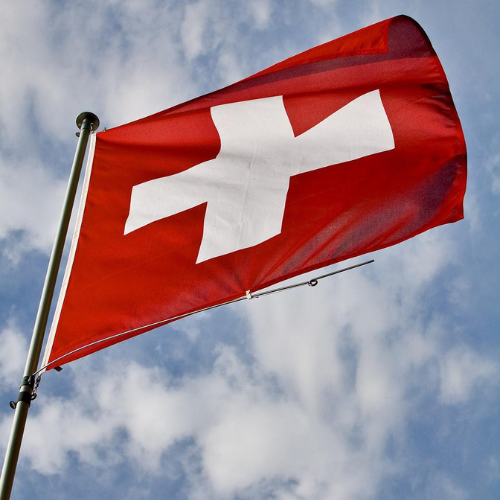Swiss authorities, long known for their financial and diplomatic neutrality, are facing criticism for their recent decision to exclude certain provisions from the European Union’s (EU) latest sanctions against Russia. Since the start of Russia’s war in Ukraine in February 2022, countries worldwide, including Switzerland, have imposed tough economic measures to weaken Moscow’s ability to finance the war. But this week, Switzerland decided not to adopt a part of the 14th EU sanctions package, sparking reactions from both its allies and critics.
The U.S. ambassador to Switzerland, Scott Miller, expressed disappointment with the decision, urging Switzerland to act more decisively in preventing Russian businesses from using loopholes in the sanctions regime. Switzerland’s government, however, defended its stance, stating it remains “unequivocally committed” to sanctions against Moscow and emphasized that the omission was not politically driven.
The Heart of the Issue: Swiss Subsidiary Loopholes
The specific part of the EU sanctions package that Switzerland chose not to adopt deals with companies’ overseas subsidiaries. Subsidiaries are smaller companies owned or controlled by a larger parent company. These overseas branches sometimes work in countries that don’t have the same rules, which could allow them to escape certain sanctions. In this case, the EU wanted to impose rules making it harder for Russian-linked companies to use their Swiss subsidiaries to bypass sanctions.
Switzerland argued that the clause requiring companies to prevent sanction violations by their subsidiaries “to the best of their ability” was too vague. The government stated it was unclear what actions companies were actually supposed to take. Without clearer guidelines, Swiss companies could struggle to comply with the law, leaving them uncertain about what was expected of them.
The government, through its State Secretariat for Economic Affairs (SECO), noted that Switzerland already has rules in place to punish companies that break sanctions. For instance, if a company based in Switzerland uses a foreign subsidiary to get around the sanctions, SECO said it would investigate and prosecute such violations. In fact, one case involving Swiss subsidiaries has already been sent to Swiss prosecutors, though no details were shared.
SECO added that while it does not plan to fully adopt this particular clause from the EU, it would reconsider if a clearer and more precise version of the rule were proposed. The government emphasized that this decision was not influenced by politics but rather by concerns over practicality and the ability to enforce the rules fairly.
Cuba’s Sanctions Crisis: A Powerless Nation Faces Dire Consequences
International Reactions: Criticism and Concerns
Despite Switzerland’s assurances, the decision has drawn criticism from key international partners, especially the United States. Ambassador Scott Miller’s reaction was swift, calling the Swiss move “disappointing.” He pointed out that Switzerland plays a crucial role in the global economy, particularly as a hub for commodity trading (the buying and selling of essential goods like oil, gas, and metals). The ambassador warned that leaving this loophole open could allow Russian companies to use their Swiss subsidiaries to continue operating, effectively bypassing the sanctions.
The U.S. and other Western nations have been working hard to ensure that Russia is financially squeezed enough to stop funding the war in Ukraine. To do this, they rely on countries like Switzerland, which has a large financial sector and is home to many international companies, to follow through with strict sanctions enforcement. By allowing Swiss subsidiaries some leeway, critics argue that Switzerland could be unintentionally allowing Russian interests to continue trading and operating in other countries, weakening the overall impact of the sanctions.
Despite these criticisms, Switzerland has maintained a delicate balance between its support for sanctions and its long-held policy of neutrality. For over 200 years, Switzerland has been a neutral country, meaning it does not take sides in international conflicts. However, this stance has sometimes been seen as conflicting with modern economic and political realities, particularly when dealing with global crises such as the war in Ukraine.
Switzerland has mostly mirrored the EU’s sanctions since the start of the conflict, but its recent decision regarding Swiss subsidiaries shows that its government is still trying to walk the line between neutrality and action. The country remains a significant player in global finance and commodity trading, and as such, the decisions it makes on sanctions have far-reaching consequences.
In response to the U.S. ambassador’s criticism, Switzerland’s SECO reiterated that the government is fully committed to preventing the evasion of sanctions through its companies. SECO stressed that it already investigates any suspicious activity that violates the sanctions regime, particularly when it involves Swiss subsidiaries. Furthermore, it said that Switzerland had no interest in being seen as a haven for businesses seeking to dodge sanctions.
For now, Switzerland remains firm in its decision. However, with growing international pressure and calls for it to close any remaining loopholes regarding Swiss subsidiaries, it may face increasing scrutiny on how effectively it enforces the sanctions that are already in place.
By taking a more cautious approach, the Swiss government seems focused on making sure that its laws are clear and enforceable before adopting further measures. Whether this strategy will be enough to satisfy its international allies remains to be seen.


